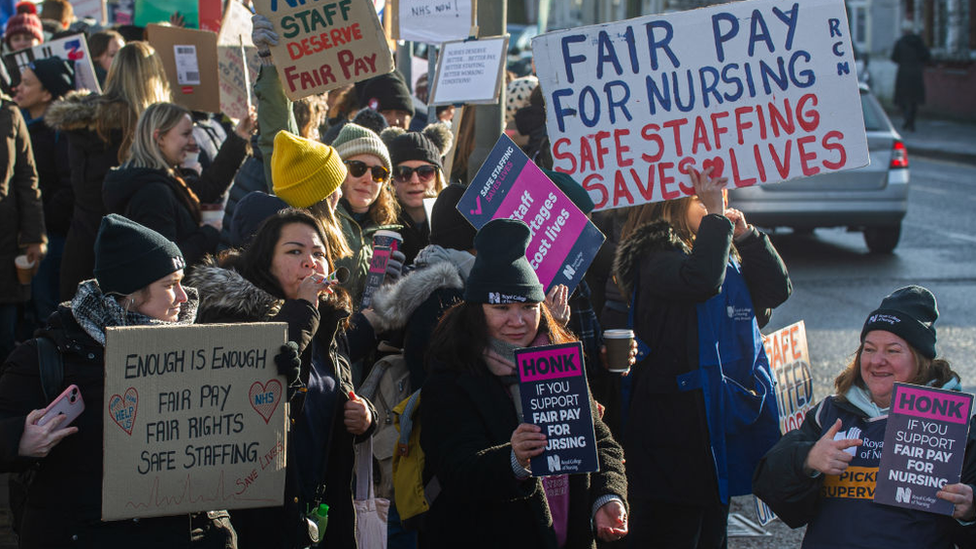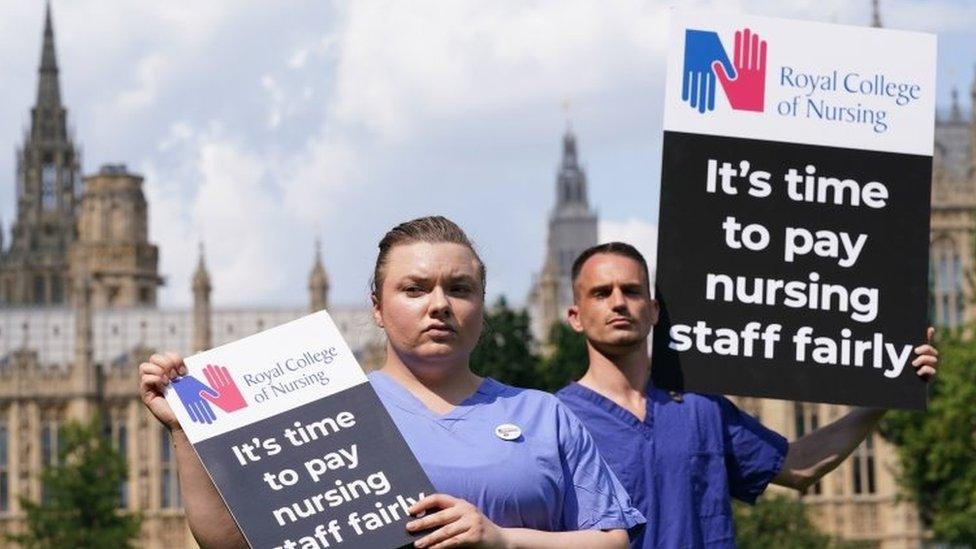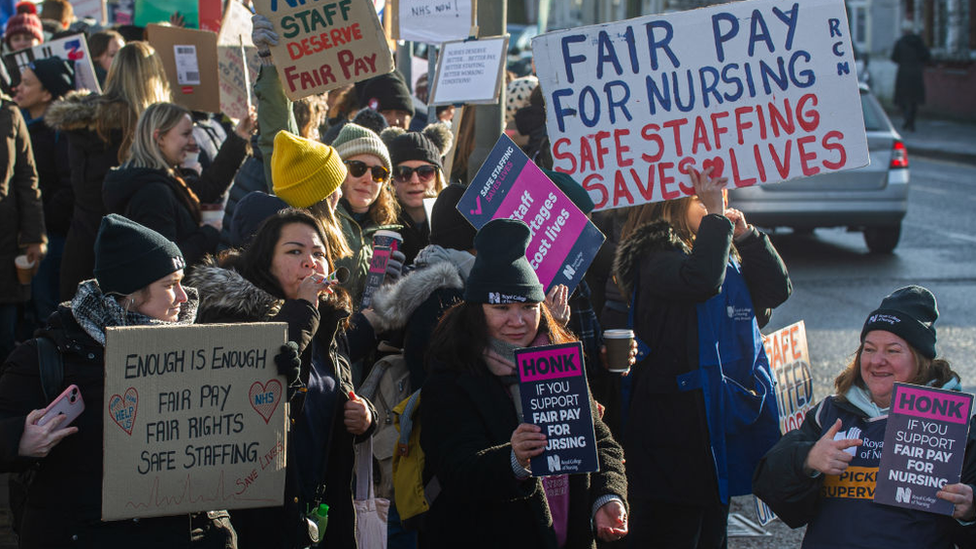Nurses strike: A&E and cancer staff could join further walkouts
- Published

An escalation of strike action could see staff from emergency departments, intensive care and cancer wards walking out
Nurses from A&E, intensive care and cancer wards could join fresh strikes in England, as a major nursing union considers escalating its pay dispute.
The Royal College of Nursing (RCN) wants higher wages, but ministers argue that pay is set by an independent body.
The union is considering a continuous 48-hour strike, which could begin in weeks.
However, under union law staff would need to meet minimum legal levels of care.
This involves providing cover for the most urgent clinical situations as part of an obligation not to endanger life.
"Our priority is keeping patients safe," the Department of Health said, adding the NHS has "tried-and-tested plans" to minimise disruption.
The action being considered would go on for longer than the recent strikes held in December and last week, which each lasted 12 hours.
The RCN also said it may not make local agreements to help NHS managers during the strike periods, as it has done before.
In previous action, there were about 5,000 cases where the strike was not fully implemented which were decided through joint committees of NHS and RCN staff.
A Royal College of Nursing source said NHS leaders are "fearing this escalation" and "must bring pressure to bear on government to get it stopped".
The union would have to give two weeks' notice for any action. Dates have not yet been set, it is understood, but could be announced within days.
The RCN says it is frustrated that the government has refused to discuss increasing the 4% pay offer already made for the current 2022-23 year.
Strikes in Wales have been called off after offers of a 7% pay increase, while nurses in Scotland who are members of the RCN and GMB unions are not holding strikes while negotiations take place.
The Department for Health has indicated there is no change in its position for nurses in England, including on pay for the current year - one of the main contentions in the dispute.
It said Health Secretary Steve Barclay would discuss pay for the coming year, and urged unions to call off their strikes.
Earlier this month, the RCN's general secretary Pat Cullen wrote to Prime Minister Rishi Sunak asking for talks. The union said it has had no reply.
On Saturday night, Downing Street said it would not add another level of negotiation into the process, and the health secretary would respond to the letter in due course.
NHS Providers, which represents hospital trusts, said the only way to avoid more disruption was by having fresh pay talks.
Its deputy chief executive Saffron Cordery said a 48-hour strike "would likely have the biggest impact on patients we've seen".
"This will be significantly compounded if junior doctors also vote to strike from next month, further derailing efforts to tackle care backlogs."
Related topics
- Published2 May 2023

- Published5 February 2023
